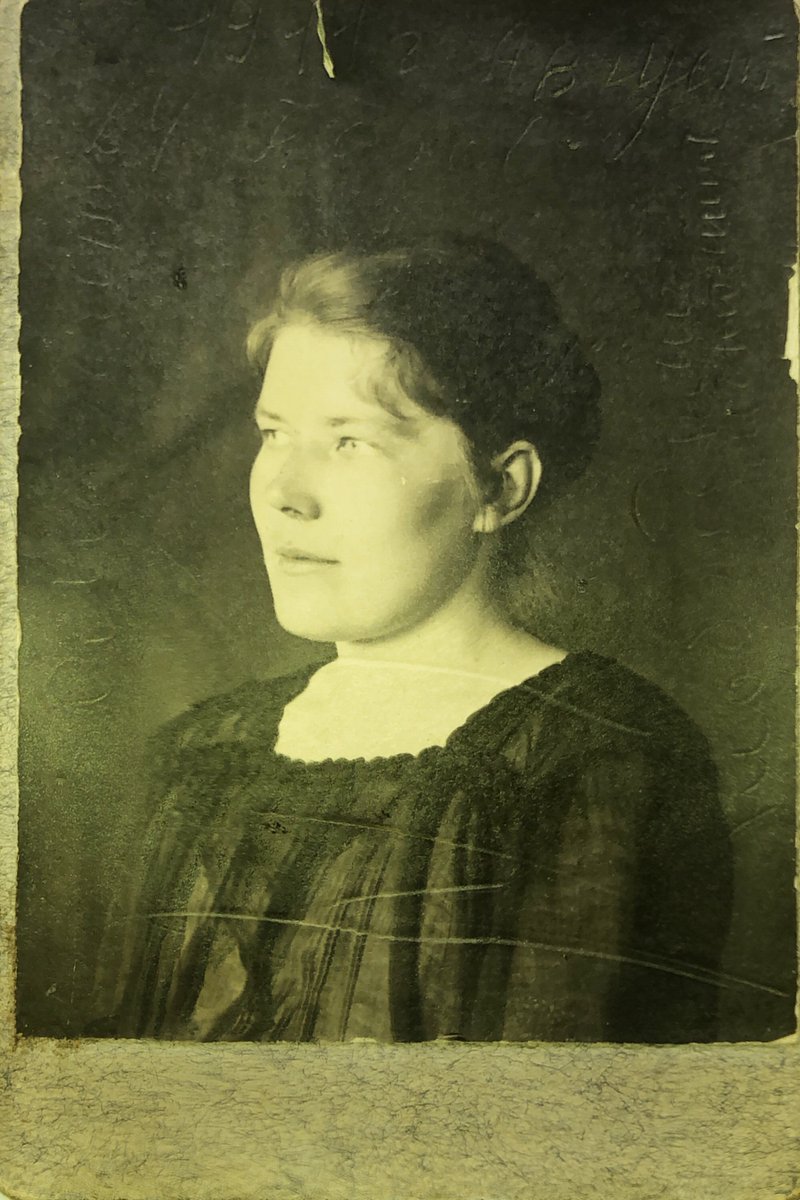I keep hearing that "the people" in the West are getting "tired" of the war against Ukraine. In case any of these tired people read this, I tell you a story. Its about not getting tired.
Erna Kelder was born in Järva county, Estonia, in 1922. She was one among 5 daughters and 1 son in a family of a local forester Eduard and Johanna Kelder. 

In 1940, a few months before Erna's 18th birthday, the Russians invaded. Then, a year later, the Germans invaded. Her father lost his job and Erna had to move to a next village to work at a farm to help feed the family.
In 1942, during the Nazi occupation, she married Johannes Lüidik, a local farm owner and previously an Estonian Defense League member. On the right. 

In 1943 Johannes was conscripted to the German army. He decided he will not fight for Germans, deserted and came to hide. He collected weapons for the case the Russians return and together they helped Estonians in the forests.
In the fall of 1944 the Russians invaded again, the Germans retreated and the Estonians could not keep the new old invaders out. Forest brother groups got bigger and the collected weapons were put in use.
In May 1945 Erna and Johannes had a daughter. At the same time they were feeding and helping a 20 member forest brother unit fighting the Russians that was based in a forest near their home.
When their daughte was 3 days old a Russian NKVD unit showed up to their farm, took Johannes along and forced him to guide them to the forest brothers camp. Johannes took them to an old campsite, got away and informed the guerilla commanders that the russians are around.
He saved 20 lives but the Russians soon captured one, found out about Johannes, he was taken a prisoner and sent to the GULAG. He died there in 1952.
Erna kept the farm alone withe an infant. The Russians started to harrass her regularly, placing agressive NKVD units in the house to catch forest brothers, the communist authorities confiscated her cattle.
By early 1947 there was not much left of the household but the local authorities asked for more. Erna gave her farm to a friend, sent her daughter to relatives and joined the forest brothers.
She lived and fought with them for 2 years. She fell in love with one of the commanders, Armin Suuroja, a sharpshooter. In 1948 she gave birth to their son. She checked in a hospital under her sisters name. Then continued to fight in the unit while also taking care of the baby. 

In October 1948 she was resting in a farm with the kids when her unit was overrun by the Russians. Many men fell in battle but several were captured. Armin survived.
Her location was beaten out of one of the prisoners and the Russians came after her. They captured her with dogs after a 2 day manhunt. Armin came to the hiding place and was cought in a Russian ambush. He was wounded in a firefight and shot himself not to be captured.
Erna was sentenced to 25 years hard labor. She did 10 in Vorkuta above the POlar Circle. Her 8 months old son was given to Russian orphanage and he daughter was taken by relatives. 

In 1956, as a prisoner, she met an Estonian soldier, Meinhard Jaaska, finishing his 10 year sentence. They got married in 1958 in Vorkuta. She became one of the leaders of Estonian political prisoners in Vorkuta. 

They could return to Estonia in 1959 but were not allowed to live in the capital. They had a daughter and built a house. They hooked up with other former priosners and forest brothers and waited.
The Russians interrogated Erna for the last time in 1988. She told them, again, that she did not have a gun when cptured, because her pistol had been given to someone to be exchanged for a machine gun that she wanted.
She told them, as in 1948, that their goal was to fight until the Soviet power is thrown out of Estonia and the were hoping for help from the USA and England. She said that in the longer term, if freedom was not achieved they would have killed themselves and not surrendered.
Erna saw the Estonian independence, she stood in the Baltic Chain in 1989. She died a few months before her 99th birthday, on August 23, 2021, the anniversary of the capture of her first husband. 

This is what will happen to you when you get tired now. But coming to think of it, I doubt that any of you is as tough as her. This is Erna in 2020, 96 years old, does she look tired to you?
• • •
Missing some Tweet in this thread? You can try to
force a refresh

 Read on Twitter
Read on Twitter









